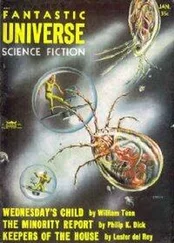William Tenn - Firewater
Здесь есть возможность читать онлайн «William Tenn - Firewater» весь текст электронной книги совершенно бесплатно (целиком полную версию без сокращений). В некоторых случаях можно слушать аудио, скачать через торрент в формате fb2 и присутствует краткое содержание. Год выпуска: 1952, Издательство: Street & Smith Publications, Жанр: Фантастика и фэнтези, на английском языке. Описание произведения, (предисловие) а так же отзывы посетителей доступны на портале библиотеки ЛибКат.
- Название:Firewater
- Автор:
- Издательство:Street & Smith Publications
- Жанр:
- Год:1952
- ISBN:нет данных
- Рейтинг книги:4 / 5. Голосов: 1
-
Избранное:Добавить в избранное
- Отзывы:
-
Ваша оценка:
- 80
- 1
- 2
- 3
- 4
- 5
Firewater: краткое содержание, описание и аннотация
Предлагаем к чтению аннотацию, описание, краткое содержание или предисловие (зависит от того, что написал сам автор книги «Firewater»). Если вы не нашли необходимую информацию о книге — напишите в комментариях, мы постараемся отыскать её.
magazine in 1952.
Firewater — читать онлайн бесплатно полную книгу (весь текст) целиком
Ниже представлен текст книги, разбитый по страницам. Система сохранения места последней прочитанной страницы, позволяет с удобством читать онлайн бесплатно книгу «Firewater», без необходимости каждый раз заново искать на чём Вы остановились. Поставьте закладку, и сможете в любой момент перейти на страницу, на которой закончили чтение.
Интервал:
Закладка:
The SIC official thumped his sloppily buttoned chest. “Braganza, I tell myself now, you’re lucky he’s too hungry for his blasted profit to take you up on that offer. Think how much fun it’s going to be to sink a hook into him when he makes a mistake at last! To drop him onto the back of Humanity First so that they’ll run amuck and destroy themselves! Oh, get out, Hebster. I’m through with you.”
He had made a mistake, Hebster reflected as he walked out of the armory and snapped his fingers at a gyrocab. The SIC was the most powerful single government agency in a Primey-infested world; offending them for a man in his position was equivalent to a cab driver delving into the more uncertain aspects of a traffic cop’s ancestry in the policeman’s popeyed presence.
But what could he do? Working with the SIC would mean working under Braganza—and since maturity, Algernon Hebster had been quietly careful to take orders from no man. It would mean giving up a business which, with a little more work and a little more time, might somehow still become the dominant combine on the planet. And worst of all, it would mean acquiring a social orientation to replace the calculating businessman’s viewpoint which was the closest thing to a soul he had ever known.
The doorman of his building preceded him at a rapid pace down the side corridor that led to his private elevator and flourished aside for him to enter. The car stopped on the twenty-third floor. With a heart that had sunk so deep as to have practically foundered, Hebster picked his way along the wide-eyed clerical stares that lined the corridor. At the entrance to General Laboratory 23B, two tall men in the gray livery of his personal bodyguard moved apart to let him enter. If they had been recalled after having been told to take the day off, it meant that a full-dress emergency was being observed. He hoped that it had been declared in time to prevent any publicity leakage.
It had, Greta Seidenheim assured him. “I was down here applying the clamps five minutes after the fuss began. Floors twenty-one through twenty-five are closed off and all outside lines are being monitored. You can keep your employees an hour at most past five o’clock—which gives you a maximum of two hours and fourteen minutes.”
He followed her green-tipped fingernail to the far corner of the lab where a body lay wrapped in murky rags. Theseus. Protruding from his back was the yellowed ivory handle of quite an old German S.S. dagger, 1942 edition. The silver swastika on the hilt had been replaced by an ornate symbol—an HF. Blood had soaked Theseus’ long matted hair into an ugly red rug.
A dead Primey, Hebster thought, staring down hopelessly. In his building, in the laboratory to which the Primey had been spirited two or three jumps ahead of Yost and Funatti. This was capital offense material—if the courts ever got a chance to weigh it.
“Look at the dirty Primey-lover!” a slightly familiar voice jeered on his right. “He’s scared! Make money out of that, Hebster!”
The corporation president strolled over to the thin man with the knobby, completely shaven head who was tied to an unused steampipe. The man’s tie, which hung outside his laboratory smock, sported an unusual ornament about halfway down. It took Hebster several seconds to identify it. A miniature gold safety razor upon a black “3.”
“He’s a third-echelon official of Humanity First!”
“He’s also Charlie Verus of Hebster Laboratories,” an extremely short man with a corrugated forehead told him. “My name is Margritt, Mr. Hebster, Dr. J.H. Margritt. I spoke to you on the communicator when the Primeys arrived.”
Hebster shook his head determinedly. He waved back the other scientists who were milling around him self-consciously. “How long have third-echelon officials, let alone ordinary members of Humanity First, been receiving salary checks in my laboratories?”
“I don’t know.” Margritt shrugged up at him. “Theoretically no Firsters can be Hebster employees. Personnel is supposed to be twice as efficient as the SIC when it comes to sifting background. They probably are. But what can they do when an employee joins Humanity First after he passed his probationary period? These proselytizing times you’d need a complete force of secret police to keep tabs on all the new converts!”
“When I spoke to you earlier in the day, Margritt, you indicated disapproval of Verus. Don’t you think it was your duty to let me know I had a Firster official about to mix it up with Primeys?”
The little man beat a violent negative back and forth with his chin. “I’m paid to supervise research, Mr. Hebster, not to coordinate your labor relations nor vote your political ticket!”
Contempt—the contempt of the creative researcher for the businessman-entre-preneur who paid his salary and was now in serious trouble—flickered behind every word he spoke. Why, Hebster wondered irritably, did people so despise a man who made money? Even the Primeys back in his office, Yost and Funatti, Braganza, Margritt—who had worked in his laboratories for years. It was his only talent. Surely, as such, it was as valid as a pianist’s?
“I’ve never liked Charlie Verus,” the lab chief went on, “but we never had reason to suspect him of Firstism! He must have hit the third-echelon rank about a week ago, eh, Bert?”
“Yeah,” Bert agreed from across the room. “The day he came in an hour late, broke every Florence flask in the place and told us all dreamily that one day we might be very proud to tell our grandchildren that we’d worked in the same lab with Charles Bolop Verus.”
“Personally,” Margritt commented, “I thought he might have just finished writing a book which proved that the Great Pyramid was nothing more than a prophecy in stone of our modern textile designs. Verus was that kind. But it probably was his little safety razor that tossed him up so high. I’d say he got the promotion as a sort of payment in advance for the job he finally did today.”
Hebster ground his teeth at the carefully hairless captive who tried, unsuccessfully, to spit in his face; he hurried back to the door, where his private secretary was talking to the bodyguard who had been on duty in the lab.
Beyond them, against the wall, stood Larry and S.S. Lusitania conversing in a low-voiced and anxious gabble-honk. They were evidently profoundly disturbed. S.S. Lusitania kept plucking tiny little elephants out of her rags which, kicking and trumpeting tinnily, burst like malformed bubbles as she dropped them on the floor. Larry scratched his tangled beard nervously as he talked, periodically waving a hand at the ceiling, which was already studded with fifty or sixty replicas of the dagger buried in Theseus. Hebster couldn’t help thinking anxiously of what could have happened to his building if the Primeys had been able to act human enough to defend themselves.
“Listen, Mr. Hebster,” the bodyguard began, “I was told not to—”
“Save it,” Hebster rapped out. “This wasn’t your fault. Even Personnel isn’t to blame. Me and my experts deserve to have our necks chopped for falling so far behind the times. We can analyze any trend but the one which will make us superfluous. Greta! I want my roof helicopter ready to fly and my personal stratojet at LaGuardia alerted. Move, girl! And you… Williams, is it?” he queried, leaning forward to read the bodyguard’s name on his badge, “Williams, pack these two Primeys into my helicopter upstairs and stand by for a fast take-off.”
He turned. “Everyone else!” he called. “You will be allowed to go home at six. You will be paid one hour’s overtime. Thank you.”
Charlie Verus started to sing as Hebster left the lab. By the time he reached the elevator, several of the clerks in the hallway had defiantly picked up the hymn. Hebster paused outside the elevator as he realized that fully one-fourth of the clerical personnel, male and female, were following Verus’ cracked and mournful but terribly earnest tenor.
Читать дальшеИнтервал:
Закладка:
Похожие книги на «Firewater»
Представляем Вашему вниманию похожие книги на «Firewater» списком для выбора. Мы отобрали схожую по названию и смыслу литературу в надежде предоставить читателям больше вариантов отыскать новые, интересные, ещё непрочитанные произведения.
Обсуждение, отзывы о книге «Firewater» и просто собственные мнения читателей. Оставьте ваши комментарии, напишите, что Вы думаете о произведении, его смысле или главных героях. Укажите что конкретно понравилось, а что нет, и почему Вы так считаете.












